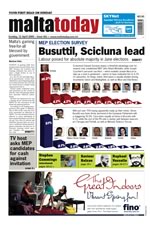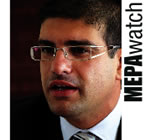
Bullets over Buskett Seeing is believing, and UK filmmaker and conservationist STEPHEN CUMMINGS thought the reports on illegal hunting in Malta were exaggerated – until he came here in person, to film a documentary on the subject last year When Stephen Cummings came to Malta to ‘shoot’ a documentary about hunting, he didn’t realise the word could be taken so literally. Any comments? |
EDITORIAL |
Managing editor Saviour Balzan | Tel. ++356 21382741 | Fax: ++356 21385075 | Email









